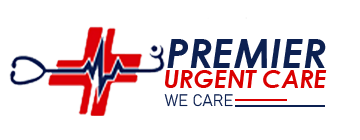
BACK PAIN

Back pain may be described as:
-
Axial pain. When pain is confined to one spot or region; may be described as sharp or dull, intermittent or persistent, or throbbing; often caused by muscle strains, facet joints, and annular tears in discs.
-
Referred pain. May be described as dull and achy; moves to other spots and varies in intensity; may be caused by degenerative disc disease.
-
Radicular pain. May be described as sudden or searing; follows the path of the spinal nerve as it exits the spinal canal; may be caused by compression and/or inflammation to a spinal nerve root; also referred to as sciatica or radiculopathy; may be caused by herniated discs, spinal stenosis, or spondylolisthesis.
-

Back pain may be caused by:
-
Large muscles, which support the spine
-
Spinal nerves, which exit the spinal canal and travel to the legs and the rest of the body
-
Facet joints, which connect the vertebrae along the back of the spine
-
Intervertebral discs, which provide shock absorption for the bones
Conditions linked to back pain include:
-
Muscle or ligament strain. Heavy lifting or a sudden awkward movement can strain the muscles and cause spasms.
-
Bulging or ruptured discs. Lack of cushion between the bones in the spine can lead to pain.
-
Arthritis. A narrowing of the space around the spinal cord can lead to spinal stenosis.
-
Osteoporosis. Fractures may occur if bones become porous and brittle.
In some cases, the underlying cause of back pain is difficult to identify. Patients may need diagnostic tests, such as X-rays or diagnostic injections, to identify or confirm the cause of back pain. Treatment will vary, depending on the cause and location of the back.
-
At Premier Urgent Care, staff treat back pain with joint and soft tissue injections and pain management techniques. A few types of injections offered at the clinic include nerve blocks, epidural injections, piriformis injections, sacroiliac joint injections, and trigger point injections. Patients should speak to their physician to find out if they could experience pain relief from joint and soft tissue injections.
Pain management techniques can help patients deal with their pain through cold and heat therapy, gentle exercise, physical therapy, massage, acupuncture, cognitive behavior therapy, yoga, deep breathing exercises, biofeedback, music therapy, and nonsteroidal anti-inflammatory medication. Each patient will receive a customized pain management plan to address the unique cause of their back pain.
Severe back pain may require advanced treatment, such as chiropractic adjustment, physical therapy, and even surgery. Premier Urgent Care supports patients needing a range of treatments. Staff is available to answer any questions about obtaining advanced treatment.
Back pain may vary in duration and intensity, and lead to difficulty participating in daily activities and hobbies.
